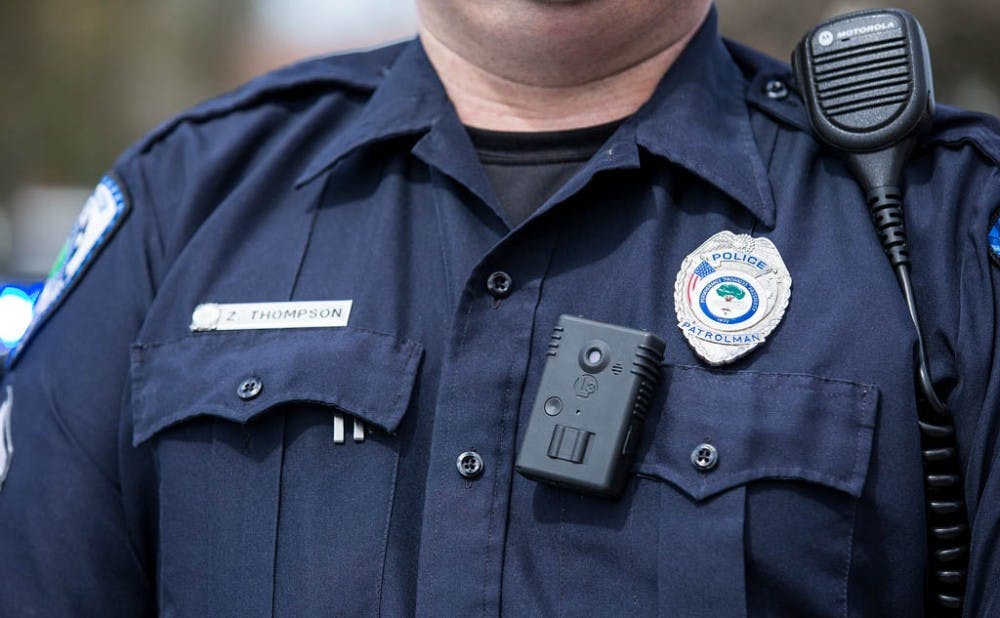Duke professors emphasized the need for changes to policing in a Thursday morning media conference.
The panel featured Brandon Garrett, L. Neil Williams Jr. professor of law; Darrell Miller, Melvin G. Shimm professor of law; and Laura Edwards, Peabody Family distinguished professor of history. They discussed topics ranging from the origins of policing in America to what needs to be done now and in the future to amend the system.
Garrett opened the discussion by arguing that the structure of policing in America needs to be “radically changed.” He encouraged Americans to think more broadly about the role of police and public safety, citing the “egregious” sentences that some citizens are facing for relatively minor offenses.
“We need to be looking at both the upper end and the lower end of the system, so not just the use of deadly force or the death penalty, but also non-deadly encounters, arrests for minor offenses, and also low-level sentencing,” Garrett said.
He underscored how the heightened health risk of serving jail time during the pandemic has led to new discussions about “why people end up in jail for petty crimes, largely due to the inability to afford cash bail.”
Miller discussed proposals to “defund the police,” saying he thinks the phrase doesn’t work well as a “slogan” for the movement.
“It’s easily misunderstood to mean ‘abolish the police,’” he said.
Rather, Miller said, the most constructive version of asking to “defund the police” is a “request to totally rethink how we do policing in America.”
“It’s about re-deploying resources to other non-policing functions that are also social services like job training, fair housing, substance abuse programs, domestic violence prevention work,” he said.
Edwards, who specializes in legal history, discussed how policing was viewed by our nation’s founders in the eighteenth century. She noted that the American people were designed to be active participants in the policing and governing of society—policing used to have “very broad and positive connotations,” she said.
“Everyone could draw on police powers as well, and that was particularly important for people who were unequal, who were on the margins of society, who could then call on the government and their authority to back them in various complex problems in their lives,” Edwards said.
Garrett agreed with Edwards that people have the authority to hold the police accountable, adding that there need to be better ways of enforcing internal accountability within police departments. He proposed establishing a certification system to track officers so that, for example, they cannot be rehired by another department if they are fired for misconduct.
Furthermore, Garrett criticized the “benefit of the doubt” that police receive in situations of misconduct.
“That shoot-from-the-hip approach has led to Black suspects being far more likely to be killed by police,” he said. “George Floyd posed no risk to anyone when he was killed in the neck hold in Minneapolis. Tamir Rice had a toy gun when he was killed in Cleveland. We can go on and on.”
To conclude the panel, Miller said that he hopes Americans understand the importance of the current political era.
“The fact that we’re at a moment, I think, where people really do recognize not only nationally but internationally that this is a problem, that this is a problem that needs to be addressed, that America is not living up to its best version of itself, and that some kind of real, substantial, data-driven changes are available and can be implemented soon—I hope that people will recognize the magnitude of this moment,” he said.
Get The Chronicle straight to your inbox
Signup for our weekly newsletter. Cancel at any time.

Leah Boyd is a Pratt senior and a social chair of The Chronicle's 118th volume. She was previously editor-in-chief for Volume 117.

